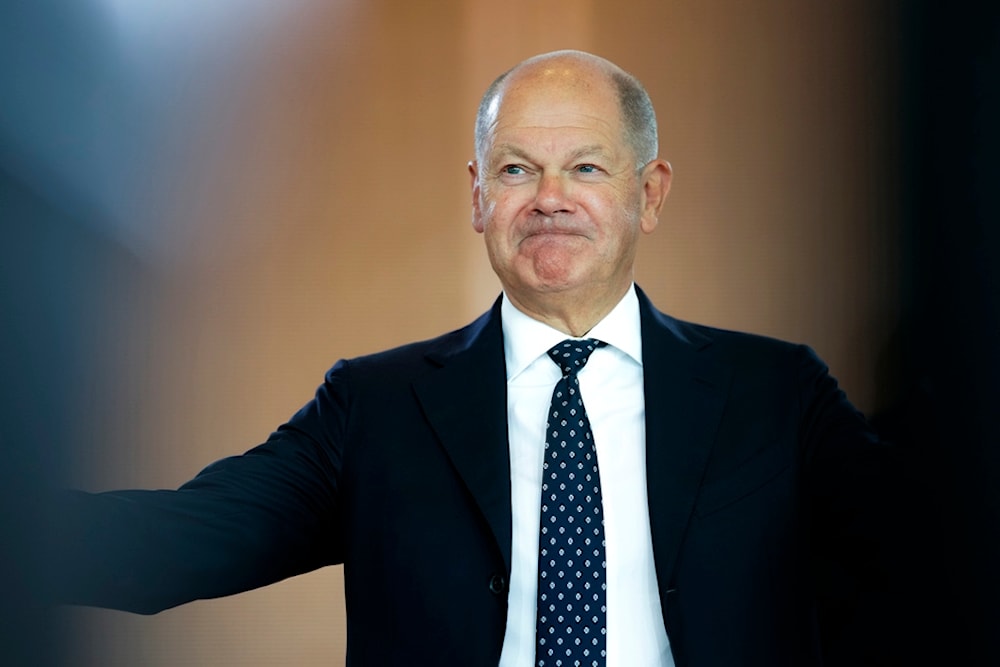Germany's Scholz willing to hold confidence vote, snap elections
If the government loses the confidence vote, early elections could be held in March 2025, while regular parliamentary elections are currently scheduled for September.
-

German Chancellor Olaf Scholz leads the cabinet meeting of the German government at the chancellery in Berlin, Germany, Wednesday, Sept. 4, 2024. (AP Photo/Markus Schreiber)
German Chancellor Olaf Scholz announced Sunday that he would be willing to hold a confidence vote that would precede the country's snap elections.
"Asking for the vote of confidence before Christmas, if all sides agree, is no problem at all for me," Scholz said, following the collapse of his ruling coalition.
In light of the coalition's dissolution, Scholz announced plans to seek a vote of confidence in mid-January. If the government loses the vote, early elections could be held in March 2025. Regular parliamentary elections are currently scheduled for September.
The chancellor also preferred to rush the vote, saying he was "not glued to his post," three years after assuming his position.
The decision comes after the dismissal of Finance Minister Christian Lindner, who reportedly proposed early elections due to the coalition's inability to agree on how to address a multibillion-euro deficit in the upcoming budget.
The coalition members had been at odds over economic policy for months, with Linder even accusing Scholz of orchestrating the collapse of the coalition, an allegation the chancellor vehemently rejected.
Scholz's political opponents have threatened to block his minority government from passing legislation unless he immediately requests a confidence vote, proposing that it take place next Wednesday. In response, the chancellor suggested that his party's parliamentary leader, Rolf Muetzenich, discuss the vote's timing with CDU leader Friedrich Merz.
Scholz also emphasized the need for proper technical preparations to ensure a swift new election. If the confidence vote goes ahead and Scholz loses, President Frank-Walter Steinmeier will have 21 days to dissolve the German federal parliament, or the Bundestag, and new elections would be required within 60 days.
Scholz to run for government again
Germany's political crisis emerged just as Donald Trump won the US presidential election, manifesting uncertainty over transatlantic relations, trade, and the future of the wars in Ukraine and the Middle East.
Scholz, who plans to run again as his party's candidate, stressed the need for a stable new government with a fresh mandate as soon as possible. During the election campaign, he emphasized the significant differences between his Social Democrats, the traditional workers' party, and the center-right CDU, led by former Chancellor Angela Merkel.
When asked about his differences with CDU leader Friedrich Merz, a wealthy former corporate lawyer, Scholz remarked, "I think I'm a little bit cooler when it comes to matters of state."
A poll published in Bild am Sonntag, conducted by the Insa Institute, shows the CDU and their Bavarian allies, the CSU, leading with 32%. The far-right Alternative for Germany (AfD) follows with 19%, although all other parties have ruled out any cooperation with the anti-immigration group.
Scholz's Social Democratic Party is placed in third place with 15%, the Greens at fourth with 10%, and lastly comes the Free Democrats, with 4%.

 3 Min Read
3 Min Read









